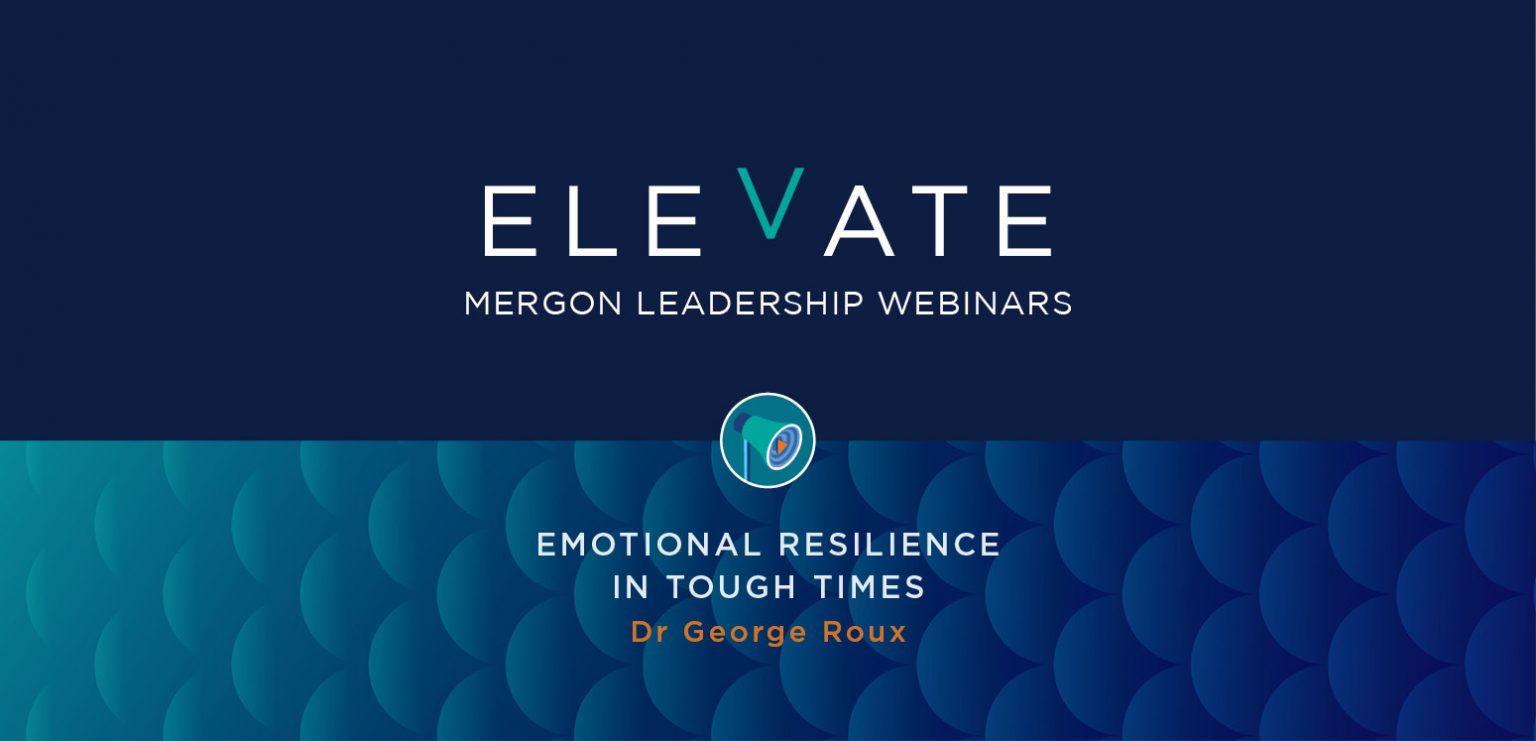Watch the full webinar here.
In this Elevate Leadership Webinar Paul Donders brings clarity to leading in the four phases of a crisis, equips us with the tools to thrive, and inspires us to think ahead.
According to Paul, leaders need to be aware of and prepared for four different phases during the COVID-19 crisis. ‘All four phases are important – even if you aren’t there yet. As leaders, we need to be with our teams and support them where they are at, but at the same time, we have to already live in the next phase mentally and emotionally. That is the challenge for leaders,’ he says.
So what are the four phases and how do you give leadership in each of these phases?
Surviving phase
The first phase is surviving – you are thrown into deep waters and you have no boat. The survival phase is a time of mourning and fear – the people you serve have lost many things including freedom, money, security and health.
‘The good news is, in the Bible, there are 365 verses about fear – one for every day. God knows that fear is a normal thing that can and will happen,’ says Paul.
In this phase, there is a need for understanding and basic security for the people you lead and there is a need to find some rhythm in daily life.
Two leadership styles are very important in the survival phase:
Empathic leadership: Be with your team, ask good questions and listen to them. Accept their pain and fear. This is not a time for lecturing or preaching. Instead, listen to your team and make sure they know you are there for them.
Robust leadership: Provide ideas for daily rhythms for a healthy lifestyle. People need daily exercise, quiet time, healthy food and sleep. Provide your team with ideas to get into these habits. Enable your people to be productive in small actions. Find out what people can produce on a daily basis and provide them with the tools they need.
Coping phase
When you arrive in the coping phase, you have learned to handle the situation – the working from home, the Zoom calls, and everything that comes with the COVID-19 restrictions.
The initial shock is over, and now you need to discover the new reality of how the world works. You have now found a lifeboat, but you are still in rough waters. You’re not surviving anymore, but coping with the wildness of the crisis.
In this phase there are three types of leadership styles:
Adaptive leadership: Grow in adaptive quotient. This is the phase where every member of your team can learn to be more adaptive. Translate your unique skills into the tools you need in this new world. Transform your products so they add real value to your customers.
Resilient leadership: Train yourself and your team in the seven resilience competencies and get ready for the marathon. Build up social and structural resources (e.g positive friends, a culture of feedback, surroundings where people can do what they do best, healthy finances).
Communicative leadership: Communicate seven times more than usual. Communication needs to be daily and weekly. Be honest, informative, personal (share your personal fear and challenges) and be helpful.
Restoring phase
In this phase, you need to build resilience in the depth and width of your organisation. In the coping phase, you were building resilience on a personal level, now you are building it in the organisation – in the systems, communication and finances.
There is now a need to refocus the mission so that everyone in your team can align their efforts for the common good. When you’re in the phase of restoring your organisation to its previous state, you need to think about getting off the lifeboat (of the coping phase) and start building a bigger boat.
In this phase there are also three important leadership styles:
Architectonic leadership: Build resilience in all systems of your organisation and build your foundation well. Design effective structures, systems and meetings. Grow in productivity again.
Mission-driven leadership: Refocus your mission to be relevant in this new world. Redefine your DNA, morals and value code because mission-driven leadership also needs a healthy base of culture. Inspire all stakeholders – internal and external – and invite them to become a part of the mission.
Customer-oriented leadership: Mediocrity in customer service is no longer accepted. Even as an NGO, people rate you on the level of your customer service. Redesign the customer journey. As a leader, be the example of customer service inspiration.
Empowering leadership: Train your next-level leadership to grow into their full potential. Meet with each one of them, one-on-one, weekly. Give trust in a generous way. Search, select, integrate and develop the right people that will embody your renewed mission and culture.
Transformational phase
In this phase, you need to build an expedition ship – a really strong boat that will enable you to discover new worlds. Transform your culture into the one you need for the new world you want to discover. In this phase, you will need energy to finish the marathon!
The three leadership styles in the transformational phase are:
Dreaming leadership: Take an eagle eye’s view of your organisation’s whole journey. Dare to dream! Discover the challenges and questions of tomorrow.
Design-thinking leadership: Team up with strategic thinkers and work through all the phases of design thinking (inspiration, ideation, implementation).
Cultural leadership: Shape your culture, set it deep in people’s minds, and secure the implementation on all levels. Transform your organisation into a healthy future-proof identity.
The challenge to leaders is to be one or two phases ahead of where our team and organisation are. Ask yourself, where are you and your team in the four phases? What is your next step to grow?
Paul Donders is chairman of the board of X-pand International, CEO of X-pand Nederland, and managing partner of X-pand South Africa. His passion is to help professionals and leaders discover their unique talents to grow into their full potential in a healthy way. He inspires other leaders to break through barriers by navigating complexities with greater confidence.
All rights reserved. Copyright 2018 Mergon Group.



